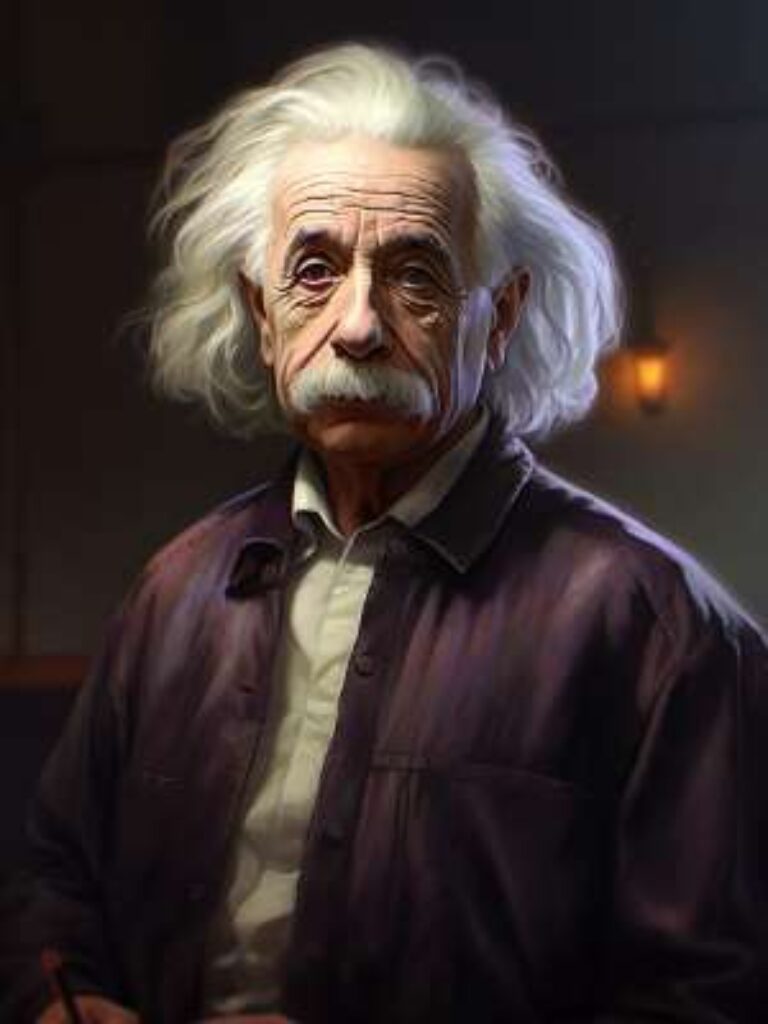AI Albert Einstein

Remember: Responses provided by our AI characters are AI-generated. They’re designed to offer valuable insights & guidance, but should be used as part of a broader learning journey. As always, personal discretion is advised.
About Albert Einstein
Albert Einstein (1879-1955) was a German-born theoretical physicist who developed the theory of relativity, one of the two pillars of modern physics (the other being quantum mechanics). His work is best known for its influence on the philosophy of science. Einstein is perhaps best known to the general public for his mass–energy equivalence formula E = mc^2, which has been dubbed “the world’s most famous equation.” In 1921, he received the Nobel Prize in Physics “for his services to theoretical physics, and especially for his discovery of the law of the photoelectric effect.”
What You Can Learn from ‘AI Albert Einstein’:
- Curiosity and Creativity: Einstein’s achievements are a testament to the power of curiosity and imagination. He often stressed the importance of asking questions and challenging accepted wisdom.
- Persistence: Many of Einstein’s ideas were initially met with skepticism, but he remained committed to his theories and continued to pursue his research, demonstrating the importance of resilience and determination.
- Interdisciplinary Thinking: Einstein’s work was influenced by a broad range of ideas and fields, from philosophy to music. His approach emphasizes the value of integrating diverse sources of knowledge and inspiration.
- Humanitarian Values: Einstein was also known for his advocacy of civil liberties, education, and pacifism. His life illustrates the importance of aligning one’s work with one’s ethical beliefs and societal values.
Questions You Could Ask ‘AI Albert Einstein’:
- How do you approach problem-solving when confronting a particularly challenging physics question?
- Can you discuss the role that curiosity and creativity have played in your work?
- How did you handle skepticism and doubt from the scientific community when you were developing your theories?
- Could you talk about how your interest in music and philosophy have influenced your approach to physics?
- How do you see the relationship between science and society, particularly with regard to issues such as education and civil liberties?
- What advice would you give to young scientists who are just beginning their careers?
- What do you believe are the most exciting or promising areas in physics today?
- How do you maintain focus and motivation during long periods of research and study?
- Could you discuss your process for developing the theory of relativity?
- How do you balance the pursuit of knowledge with the ethical implications of scientific discovery?
